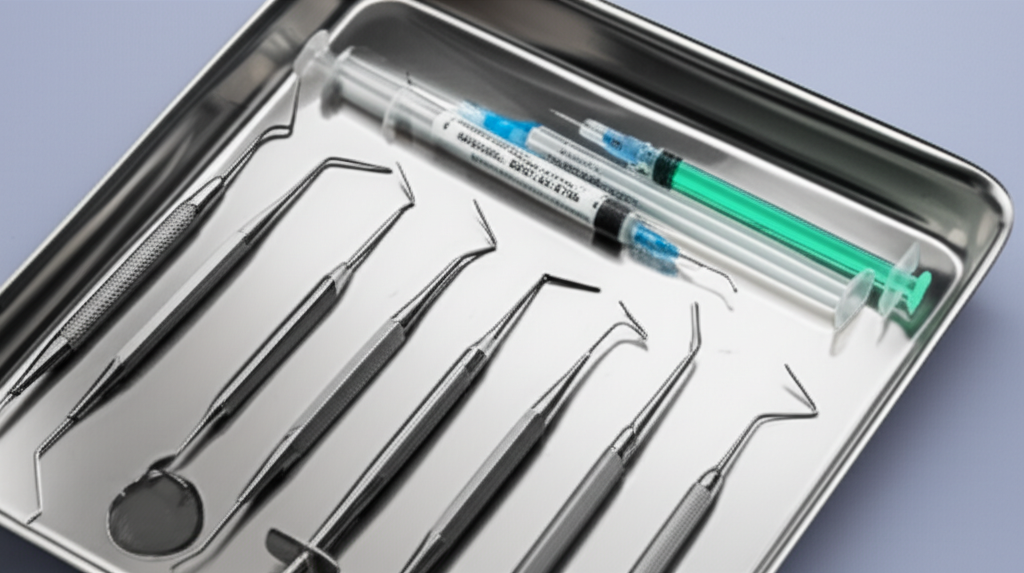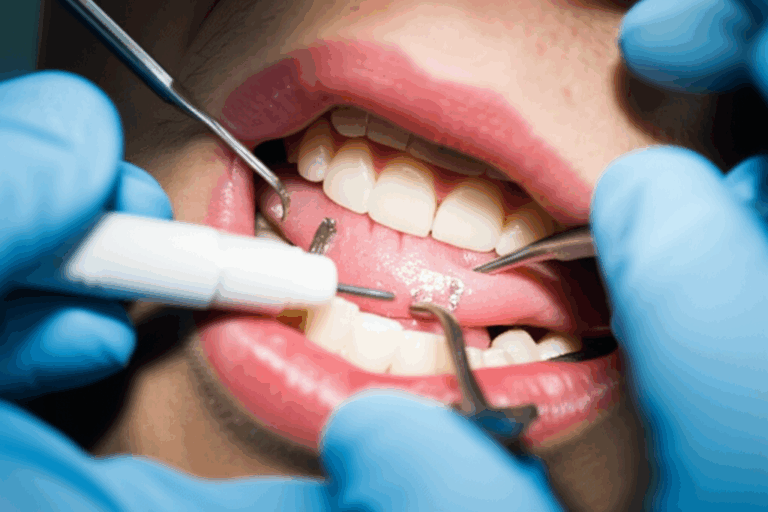
What is a General Dentist? Your Primary Guide to Comprehensive Oral Health
Table of Contents
Introduction: The Foundation of Your Oral Health
When I first started paying close attention to my mouth health as an adult, I quickly saw something basic: a general dentist wasn’t just someone I’d see when I had a toothache or needed a cleaning. My general dentist became my go-to for everything dental—my main helper and guide, showing me the basics of mouth care.
So, what exactly is a general dentist? And why is having one so important? In this article, I’ll share everything I’ve learned from personal experience and looking things up. My goal? To help you see just what general dentists do, why they matter, and how to make smart choices for your own teeth.
If you’ve been asking if you really need those check-ups, if your dentist does the same thing as a specialist, or even how to find someone you trust with your smile, you’re in the right place. Let’s get started.
The Core Role of a General Dentist: Your Primary Oral Healthcare Provider
Early on, I learned my general dentist is like the family doctor for my mouth. They’re who I call whether I have a question about bleeding gums or I’m dealing with annoying tooth pain at night.
First Point of Contact
Whenever my kids hurt their teeth playing sports, or I get a sharp pain from eating ice cream, my general dentist is my first call. They know my dental story and can tell what’s normal.
Care for Your Whole Mouth
Many people don’t know general dental care covers almost everything in your mouth. That means regular cleanings, fixing cavities, handling gum issues, and lots of treatments to keep teeth and gums healthy.
During my visits, I’ve had everything from dental X-rays to fluoride treatments to tips on brushing better—all at one time. It’s really a one-stop place for mouth health.
Prevention: Stopping Problems Before They Start
One thing my dentist says all the time is how prevention saves time, money, and pain later. Most of my appointments are about stopping problems before they even start. Oral cancer checks and sealants for my kids’ teeth let me relax a little.
Guiding and Sending to Specialists
Sometimes you need something more, like braces or tough gum surgery. That’s when my general dentist helps, sending me to orthodontists or gum experts if needed. They’re like the coach on the team, making sure I get the right help.
Common Services Offered by General Dentists
Over the years, I’ve needed all sorts of things—prevention, fillings, a crown after cracking a tooth on popcorn. I was surprised by how much general dentists can actually do:
Preventive Dentistry
Routine Dental Check-ups and Exams
My dentist always starts with a full exam, looking for the first signs of cavities, gum disease, or even oral cancer. These visits are the base of prevention.
Professional Teeth Cleanings
No matter how good I brush, the way my dental hygienist cleans my teeth feels special. Cleanings get rid of tough plaque and tartar, which helps stop cavities and gum issues.
Dental X-rays
Regular X-rays have found little problems in my teeth before they could get really bad (and cost more).
Oral Cancer Screenings
At one check-up, my dentist explained why they always look at my tongue, cheeks, and throat—a quick check for oral cancer. It’s a relief knowing they care about the big things too.
Fluoride Treatments and Dental Sealants
My kids got sealants early, and I think those thin shields saved us from more cavities. I also get fluoride treatments when my dentist suggests it, since it makes my tooth enamel stronger.
Oral Hygiene Education
Every visit, I get help on how to brush, floss, and use products that are best for me. Turns out, how you do it is important.
Restorative Dentistry
If prevention is the plan, fixing teeth is about giving them another chance.
Dental Fillings
Almost everyone has a cavity at some point, me too. Fillings fix the tooth and stop cavities from getting worse.
Dental Crowns
When I broke a molar, my dentist gave me a crown—a tough cover that looks like my tooth. It felt odd for a day or so, but then I didn’t even notice it.
Dental Bridges
After my dad lost a tooth, his dentist went over the choices. A bridge filled the gap, helping him chew and feel comfortable smiling again.
Root Canal Therapy
I was nervous about getting a root canal until I had one. My dentist explained it all, and it took my pain away fast.
Tooth Extractions
Sometimes, a tooth can’t be saved. My dentist made taking it out quick and almost pain-free.
Dentures (Partial and Complete)
Both my grandparents have dentures from their general dentist, and after a short time getting used to them, they went back to eating and talking just like before.
If you’re curious about how crowns or bridges are made, you might like to take a look inside a crown and bridge lab where these are made to fit.
Cosmetic Dentistry
Teeth Whitening
To be honest, coffee made my teeth look pretty dull. The whitening at my dentist’s made a big change—way better than the strips from the store.
Dental Bonding and Veneers
A friend of mine chipped her front tooth, and the dentist fixed it with bonding in one visit. For bigger changes, veneers are used—a thin shell that covers the front of teeth. If you’re interested in the process, check out a veneer lab.
Other Services
Emergency Dental Care
Emergencies come up—broken teeth from popcorn fights or quick, painful toothaches. My dentist has always gotten me in fast when I really needed help.
Mouthguards
From night guards to stop teeth grinding (my spouse wears one) to sports guards for my son, my dentist keeps our mouths safe.
Basic Gum Care
When my gums started bleeding, I got a simple plan: better brushing, extra cleanings, and straightforward advice. It changed things a lot.
Referrals to Specialists
For harder root canals, braces, or mouth surgery, my dentist told me why I needed a specialist, and helped me get connected.
When to See a General Dentist
You may ask, “When should I really go?” Here’s what I’ve learned—often the answer is just showing up on a regular basis, even if nothing feels wrong.
Regular Check-ups
Twice a year. That’s what my dentist always says, no matter your age or teeth history.
Dental Pain or Discomfort
Don’t put it off. Sharp pain, dull aching—any pain can mean a bigger problem.
Visible Mouth Problems
If you see cavities, swollen gums, mouth sores, or loose teeth, go in for a visit. Once I ignored bleeding when flossing, but a cleaning and better care solved it.
Cosmetic Changes
Want whiter teeth, veneers, or to fix a chipped tooth? Start with your dentist—they’ll tell you what’s doable.
Dental Emergencies
Lost fillings, teeth knocked out, broken crowns—these happen. The faster you call, the better your chances for keeping your teeth strong.
Oral Health Check-ups
If you start a new medicine, are told you have another health problem (like diabetes), or just want to be sure, a dental exam is smart.
General Dentist vs. Dental Specialist: Understanding the Difference
Learning about the different kinds of dentists made my choices a lot clearer.
General Dentist: The Usual Doctor
A general dentist is like your regular doctor but for your mouth. From my experience, they know a bit about everything—prevention, fixing teeth, simple looks, and even emergencies. They do most things themselves.
Dental Specialists
Sometimes you need an extra expert. Here are some I’ve met or heard of:
- Orthodontist: Straightens teeth and fixes bites.
- Periodontist: Works with gums and tricky gum problems.
- Endodontist: Does tough root canals.
- Oral Surgeon: Handles surgeries, like wisdom teeth.
- Pediatric Dentist: Takes care of kids’ teeth.
The Referral Process
A good dentist knows when to pass you on to a specialist. I like when mine says, “Let’s find the right person for this.” They send over my X-rays and notes, making sure everything is handled.
Education, Training, and Qualifications
If you want to know why you can trust your dentist, look at everything they learned to get here.
Bachelor’s Degree
Every dentist starts with a college degree, usually in science. It’s four years of basics like biology and chemistry.
Dental School (DDS or DMD)
After college, dentists go to four years of dental school, finishing with either a DDS or DMD degree. There isn’t any real difference in what they can do—just the name their school gives.
Getting a License
Before seeing patients, dentists have to pass tough tests and get a license from the state. My dentist said there are also background checks and rules to follow.
Learning After School
Good dentists keep learning even after school. There’s always new tools and ways of doing things. I’ve seen my dentist switch to digital X-rays and use better numbing options after going to classes.
If you’re curious about how technology is changing dentistry, take a quick look at a digital dental lab—it’s pretty cool.
The Benefits of Having a Regular General Dentist
Here’s where my own experience really matters.
Consistent and Personal Care
Having one dentist who knows my family’s history is just better. I don’t have to go through my whole story every time.
Catching Problems Early
Because we stuck to our appointments, we found my son’s small cavity way before it turned serious.
Keeping Mouths Healthy Over Time
Taking care of teeth isn’t something you do once—it’s ongoing. My general dentist watches for small changes and helps update my care as I get older.
Trust and Peace of Mind
Knowing I have someone who won’t push things I don’t need or miss important stuff helps me sleep better.
Whole Health Benefits
I was surprised that sometimes signs of bigger health problems—like diabetes—show up in your mouth first. That means dentists can often notice things early.
How to Choose the Right General Dentist for You
Picking the right dentist can feel like finding a good friend—how you get along matters, but so do the details. Here’s my short list from looking myself and talking to others:
Location and Hours
Is the office nearby? Do their hours work for you? If it’s too far or hard to get to, you’re more likely to skip visits.
What They Offer
Do they do what you need—cleanings, basic repairs, whitening? If you’re thinking about dentures, it helps if they work with a trusted removable denture lab.
Technology and Tools
I like dentists who use digital X-rays, gentle numbing, and keep things really clean. It shows they care about safety and comfort.
Payment Choices
Dentistry matters, but so does your wallet. Look for an office that takes your insurance or has fair payment options.
Reviews and Opinions
Before my last move, I asked friends and checked reviews. If lots of people say the same good or bad things, it’s worth noting.
Comfort Level and Communication
Most important, pick someone you can talk to easily. If they take time to answer questions and explain things, you’ll feel better about coming back.
Conclusion: Investing in Your Smile and Health
If there’s one big thing I’ve learned, having a dentist you trust is a real game changer. They’re not just “the teeth person”—they’re your partner for staying healthy, happy, and confident.
Recap: A general dentist helps stop problems, fixes teeth, teaches about mouth care, can spot bigger health issues, and points you to other experts when needed. They make it way easier to have a healthy smile.
So, if it’s been a while since you saw the dentist, or you aren’t sure where to start, my advice is simple: Make that appointment. Your future self (and teeth) will be glad you did.
Ready for what’s new? See how dental technology, from 3D dental lab prints to special cosmetic labs, is making trips to the dentist easier and better than ever before.








